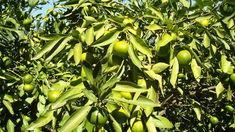
Be Organic began picking volumes of its organic satsumas in South Africa last week, with the first shipment due to arrive in the UK on April 15.
After a long drought period, growers received some welcoming rains at the end of February and early March. Be Organic’s Andrew Poulton told freshinfo: “Now, with three days of colder weather, we are seeing some excellent natural colour developing, so it is just the right time to pick and pack in our new and dedicated organic packhouse.”
At this stage, prospects for the organic citrus crop are good, according to Poulton. There will only be small volumes of satsumas available and clementines will be a manageable crop, slightly smaller in size than last year.
“Lemon supplies are running slightly late and should continue right up to European new-season arrivals in October,” said Poulton. “Fruit size is larger than last year. Oranges are again a normal crop although slightly late, with the bulk of the fruit in the more popular medium sizes.”
However, it is a different story for Be Organic’s organic plum, apple and pear grower, Fairview Estates, which farms in the Langkloof Valley, north of George on the borders of the Eastern and Western Capes.
“Mother Nature has not been kind to [Fairview] in the last two years,” said Poulton. “There was a massive rainstorm - 500mm in a day - on the mountains above the farms in November 2007, which wiped out the main dam and many minor ones. These were repaired in part by August 2008 but missed catching their winter rains. Since then, a drought and very hot temperatures have not helped.”
However, temperatures are now cooling down and there was a welcome frost last week, continued Poulton, although there is still no rain. “Things are not easy for the farmers in that area,” he said. “They have some bore holes and are doing their best to salvage what they can. Some varieties are doing better than others. At present, the crop loss is 25 per cent down and this will increase if they do not get rain soon.”
Be Organic’s first Gala and Royal Gala apples are scheduled to arrive in the UK on April 6, with reportedly “excellent” pressures, sugars and appearance.
“Granny Smith is a late variety and with leaves hanging limp they offer little protection to the fruit from the scorching sun,” said Poulton. “There is no damage to fruit internally but cosmetically it is not attractive to the public, who expect Granny Smiths to be green.
“Strangely enough, the Cripps Pink and Reds, although smaller in size than usual, seem to be holding up better. These trees tend to be in more sheltered areas in the bottom of the valleys,” he added.



